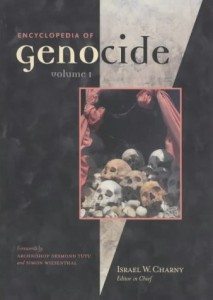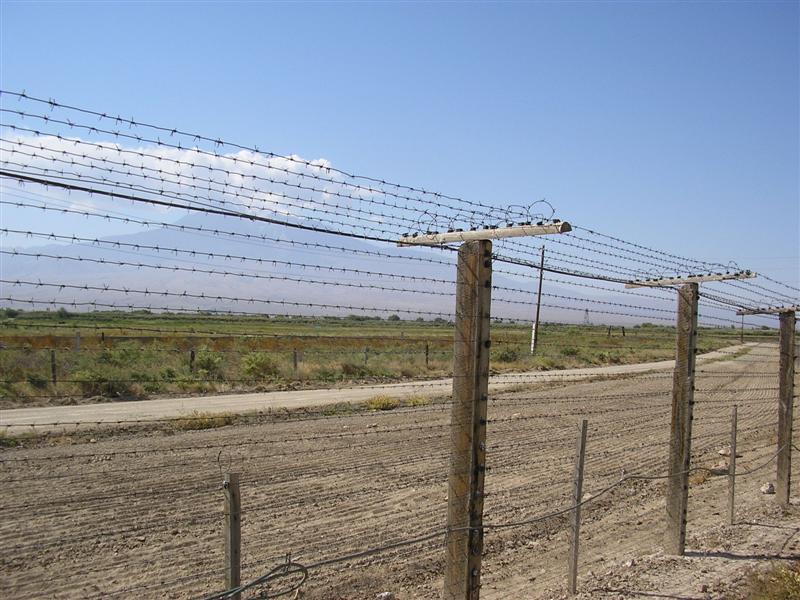Call to the
Commemoration of Armenian Genocide in Turkey
Turks, Armenians and Europeans,
let’s commemorate the Armenian genocide together and in Turkey!
24-april-commemoration-in-taksim-istanbulIn 1915, the
implementation of a methodical and premeditated plan led to the extermination of
one and a half million Armenians in the Ottoman Empire, in an attempt to destroy
an entire civilization and to “Turkify” Anatolia. The Armenian people were the
victims of a genocide which would soon serve as a gruesome reference for others
to follow.
The successive governments of the Turkish Republic have
since fought to deny the dark side of the history of their country, and to make
their people and the world forget that the genocide ever occurred.
Until today the mere reference to these historical
facts has provoked fierce opposition in Turkey, including verbal and physical
threats and on occasion even murders against their authors. Genocide denial has
encouraged racism and hatred against Armenians and other non-Muslim
minorities.
While some allege that acknowledging the reality of the
Armenian Genocide is an attack on the Turkish people and on Turkishness, it is
in fact an attack on genocide-denial and a step towards justice and
democracy.
For some years now, some in Turkish civil society have
courageously organized commemorations of the Armenian genocide. A circle of
truth and righteousness has gradually widened, as more and more voices joined in
a humane and moving effort to confront the official discourse of
genocide-denial.
Last year, for the first time in nearly a century, a
foreign delegation made up of European antiracist, human rights and Armenian
diaspora leaders joined the commemorations in Turkey, answering the call for
solidarity launched by Turkish civil society.
Together we have shown that in Turkey those who
acknowledge and remember the Armenian genocide are more determined and more
numerous than those who deny it. We have shown that there exists a part of
Turkish society that is strongly attached to the values of democracy and human
rights, and is ready to confront its past with lucidity.
This year, human rights and anti-racist activists,
committed citizens, civil society leaders, intellectuals and artists, united in
Turkey and across Europe by a common desire to see the truth finally recognized,
will commemorate the Armenian Genocide in Turkey on April 24th 2014. Even though
we are on the eve of the centenary of the perpetration of the genocide, its
legacy remains part of our present.
Our shared initiative is one for recognition,
solidarity, justice, and democracy.
It is an initiative for recognition: it allows members
of the Armenian Diaspora and Turkish Armenians who have resisted exile to openly
mourn their ancestors; it allows Turkish individuals and organizations to ask
for forgiveness on behalf of their ancestors.
It is an initiative for solidarity between all those
who fight for the acceptance of history. The divide is not between Turks and
Armenians but between those who struggle for the recognition of the Armenian
Genocide and those who promote denial. Quite simply, it is not a question of
origins but of perspectives for the future.
It is an initiative for justice: In the words of Elie
Wiesel, “Genocide kills twice, the second time through silence.” Denial is the
perpetuation of genocide, and genocide is the most violent act which racism can
lead to. Fighting denial is an attempt to heal the trauma transmitted in
Armenian communities as well as in Turkish society from one generation to the
next. Fighting denial is thus part of the fight against racism, for a more equal
and a fairer society. It offers new generations the opportunity to look together
towards the future.
Finally, it is an initiative for democracy, not only
because lifting the taboo of the genocide is an indispensable condition for
advancing freedom of speech in Turkey, but also because, as Jorge Semprun
frequently recalled, democracy requires the vitality of civil society.
Strengthening relationships between civil societies will reinforce those who
have been fighting to advance democracy in Turkey and elsewhere in Europe.
For these reasons, on April 24 we will commemorate the
Armenian Genocide together and in Turkey. We call upon all individuals committed
to recognition, solidarity, justice and democracy to join us or to support us in
turning the page on a century of denial.
***
Paul Morin, Executive Director of the European Grassroots Antiracist Movement – EGAM (Europe), Cengiz Algan & Levent Sensever, Spokespeople for Durde! (Turkey), Alexis Govciyan & Nicolas Tavitian, President Europe and Director of the General Union of Armenians Charity of the Armenian General Benevolent Union – AGBU (Europe), Ayse Öktem, Steering Committee member of YSGP Istanbul (Turkey), Charles Aznavour, Singer (France), Bernard Henri Lévy, Philosopher (France), Abdullah Demirbas, Mayor of Sur district of Diyarbakir (Turkey), Ara Toranian, Co-President of “Coordination Council of Armenian Organizations in France” (CCAF), Serge Klarsfeld, President of “Sons and Daughters of Deported Jews from France” (France), Murat Timur, President of Van Bar Association (Turkey), Raffi Kantian, Chairman of the board, “German-Armenian Society” (Germany), Bernard Kouchner, former French Minister of Foreign Affairs, Founder of Doctors Without Borders and Doctors of the World, Adam Michnik, Historian, journalist, essayist and former leader of Solidarnosk (Poland), Ragip Zarakolu, Writer (Turkey),Romashuk Hairabedian, President of the “Armenian Social and cultural Foundation in The Netherlands” (The Netherlands), Jovan Divjak, Former Commanding General of Yugoslav Army, Defender of besieged Sarajevo (Bosnia), Ömer Laçiner, Writer (Turkey), Loris Toufanian, President of Armenian Youth Movement “Nor Seround” (France), Tahar Ben Jelloun, Writer and poet (Morocco), Dario Fo, Writer, Nobel Prize for literature (Italy), Ferhat Kentel, Sociologist (Turkey), Hakob Kazandjian, President of Armenian community of Cyprus (Cyprus), Miguel Angel Moratinos, Former Minister of Foreign Affairs (Spain), Murat Celikkan, Journalist (Turkey), André Glucksmann, Philosopher (France), Cindy Léoni, President of “SOS Racisme” (France), Yves Ternon, Historian and Professor (France), Sonia Aïchi, President of “FIDL” (High school’s Independent and Democratic Federation) (France), Yann Moix, Movie director and writer, Prix Renaudot 2013 (France), Oliviero Toscani, Photographer (Italy), Sacha Reingewirtz, President of the “French Union of Jewish Students” (France), Jean Yériché Gorizian, Spokeperson of Armenian Youth Movement “Nor Seround”, Richard Prasquier, President of “Foundation pour la Mémoire de la Shoah” (France), Laura Chatel &Lucas Nédelec Co-General Secretary “Jeunes Ecologistes” (France), Laura Slimani, President of Movement of Young Socialists (France), Alma Masic, President of Youth Initiative for Human Rights (YIHR) (Bosnia), Armen Artwich, Vice President of Foundation of Culture and Heritage of Polish Armenians (Poland), Deyan Kolev, Chairman of “Amalipe” (Bulgaria), Faik Akçay, Writer (Turkey), Sonia Avakian-Bedrosian, President of AGBU-Sofia (Bulgaria), Marian Mandache, Executive Director of “Romani Criss” (Romania), Çagla Oflas, Spokeperson of “Campaign for Confronting the Centennial Truth” (Turkey), Elina Chilinguirian, Journalist (Belgium), Raba Gjoshi, Executive Director of the Youth Initiative for Human Rights (YIHR) (Kosovo), Prof. Dr Ayse Gözen, Professor (Turkey), Patrick Donabedian, Historian and lecturer, Aix-Marseille University (France), Mario Mazic, Director of Youth Initiative for Human Rights (YIHR) (Croatia), Ümit Kurt, Writer (Turkey), Elena Gabriielian, Journalist (France), Jovana Vukovic, “Regional Centre for Minorities” (Serbia), Serdar Yazar, President of “Turkish Community in Berlin Brandeburg” (Germany), Akif Kurtulus, Writer (Turkey), Haik Garabedian, Co-president AGBU Young Professionals of Plovdiv (Bulgaria), Erika Muhi, Director of the Anti-Discrimination Bureau “NEKI” (Hungary), Gazi Giray Günaydin, Activist (Turkey), Irina Ghaplanya, Doctoral student, University of Cambridge (United Kingdom), Céline Gulekdjian, Film director (Belgium),Katalin Barsony, President of the “Romedia Foundation” (Hungary), Nurcan Kaya, Lawyer (Turkey), Inge Drost, President of the “Federation of Armenian Organizations in the Netherlands” (The Netherlands), Alain Daumas, President of “UFAT” (French Union of Roma Associations) (France), Roni Margulies, Journalist and poet (Turkey), Gueguel Khatchatouryan, President of the Armenian community in Milan (Italy), Adriatik Hasantari, President of “Roma Active” (Albania), Maja Micic, Director of Youth Initiative for Human Rights (YIHR) (Serbia), Elio Montanari, Photographer (Turkey), Hrant Kostanian, Associate Research Fellow, Centre for European Policy studies (Belgium), Marcel Kabanda, President of “Ibuka” (France), Filiz Montanari, Film Director (Turkey), Harout Palanjian, President of the Armenian community in the Netherlands (The Netherlands), Prof. Dr Sinan Özbek, Professor (Turkey),Héléne Piralian, Psychoanalyst (France), Miroslav Broz, President of “Konexe” (Czech Republic), Yildiz Önen, Spokeswoman of “Global Peace and Justice Coalition” (Turkey),Valentina Poghosya, Leader of the British Armenian community (United Kingdon), Maria De Franca, Director of “La Règle du Jeu” (France), Metin Algan, Activist of DurDe (Turkey), Balasz Denes, Director of “Open Society Initiative for Europe” (Hungary), Cem Rifat Sey, Writer (Turkey), Witold Klaus, President of SIP (Association for Legal Intervention) (Poland), Jörn Sudhoff, Professor of Social Sciences (Turkey), Dogan Özguden, Chief Editor, Info-Türk (Belgium), Katarzyna Kubin, Director of the Board of the “Foundation for Social Diversity” (Poland), Zeynep Tozduman, Investigative Writer (Turkey), Kalle Larson, Director of“Centrum Mot Rasism” (Sweden), Inci Tugsavul, Responsible editor Info-Türk (Belgium), Renée Le Mignot, Co-President of the “MRAP” (Movement against Racism and for Friendship between Peoples) (France), Haluk Ünal, Film Director (Turkey), Nick Lowes, Founder of “Hope Not Hate” (United Kingdom), Aldo Merkoci, President of “Mjaft Movement” (Albania),Ahmed Moawia, President of the “Greek Forum for Migrants” (Greece), Jette Moller, President of “SOS Mod Racisme” (Danemark), Angela Scalzo, General Secretary of “SOS Razzismo” (Italy), Nicolai Radita, President of “Roma National Centre” (Moldavia), Boris Raonic , President de “Civil Alliance” (Montenegro), Paula Sawicka, President of “Open Republic” (Poland), Jacques Bérès, President of “France-Syria Democracy”, President of “Enfants Du Canal” (France), Bruce Clarke, Artist (South Africa), Roni Alasor, Journalist and writer (Bulgaria), Sebu Aslangil, Jurist (Turkey), Irena Borisova, Director of “People Against Racism” (Slovakia), Ofer Bronchtein, President of “Forum pour la paix” (France), Prof. Chan E.S. Choenni, Hindustani Migration and Indian Diaspora, Free University (VU) Amsterdam (The Netherlands), Andrei Dragomir, Director of the Moldovan Centre for Human Rights (Moldovia),Lina Gidlung, Director of Antidiscrimination bureau Upsala (Sweden), Janette Gronsfort,President of “Rasmus Network” (Finland), Merle Haruoja, Director of “Estonian Institute for Human Rights” (Estonia), Pierre Henry, General Director of “France Terre d’Asile” and Executive Board Member of the “European Council for Refugees and Exiles”, Hristo Ivanovick, President of “Alliance for Human Rights” (Macedonia), Krassimir Kanev, President of the“Bulgarian Helsinki Committee” (Bulgaria), Anhelita Kamenska, Director of “Latvian Centre for Human Rights” (Latvia), Joël Kotek, Professor (Belgium), Jacky Mamou, President of “Urgence Darfour”, former President of “Doctors of the World”, Edward Mier-Jedrzejowicz, Business Executive, Foundation M.K. z Tyskiewiczow Krolikiewicz (Poland), Anna Šabatová, Head of “Czech Helsinki Committee” (Czech Republic), Ahmed Samih, Head of the “Andalus Institute for Tolerance and Anti-Violence Studies” (Egypt), Dominique Sopo, Former President of “SOS Racisme” (France), Rune Steen, Director of the “Norwegian Centre Against Racism” (Norway), Muhammadi Yonous, Head of the “Greek Forum of Refugees” (Greece),Ligue des Droits de l’Homme (League of Human Rights) (France), European Roma and Travellers Forum (ERTF), International Human Rights League.Also supported by the following Political leadersEwald Stadler, Member of European Parliament (Austria), Michèle Rivasi, Member of the European Parliament (France), Sevil Turan, Spokeswoman of YSGP (Left Party of the Future) (Turkey), Meltem Oral, Spokeswoman of The Revolutionist Socialist Labour Party (DSIP) (Turkey), Ufuk Uras, 23rd term MP (Turkey), Klemen Zumer, Advisor, European Parliament (Belgium), Senol Karakas, Spokesman of The Revolutionist Socialist Labour Party (DSIP) (Turkey), Andrej Hunko, Member of the Bundestag (Parliament) (Germany), Naci Sönmez, Spokesman of YSGP (Left Party of the Future) (Turkey),AndSerge Artunoff, Dentist (Belgium), Anelga Arslanian, Doctor (Belgium), Areg Barseghyan, International civil servant, Asian Development Bank (Armenia), Tatyos Bebek, Dentist (Turkey),Gilbert Dalgalian, Linguist (Belgium), Atilla Dirim, Translator (Turkey), Simon le Grand, International Civil Servant (Belgium), Dr Amine Ishkanian, Lecturer, London School of Economics and Political Science (United Kingdom), Souren Seraydarian, Former United Nations Executive (France), Zeynep Tanbay, Choreographer (Turkey), Sezai Temelli, Lecturer (Turkey), Lisa Abadjian, Psychologist (Belgium), Korhan Gümüs, Architect (Turkey), Güven Gürkan Öztan, Lecturer (Turkey), Silva Chemedikian, AGBU Sofia , Business Executive (Bulgaria), Michael Domanian AGBU – The Netherlands (The Netherlands), Chalabi Chalabi(The Netherlands), Alexandre Kalantarian (Administrator of S.A. Talent) (Belgium), Prof. Dr. Gençay Gürsoy (Turkey), Harout Mamikonian (The Netherlands), Lydia van de Fliert, International Human Rights Consultant (Belgium / The Netherlands), Ergun Günrah, PR (Turkey), Kate Markaryan, AGBU Europe (Europe), Oncho Cherchian, AGBU Sofia (Bulgaria)
______________________________________________




